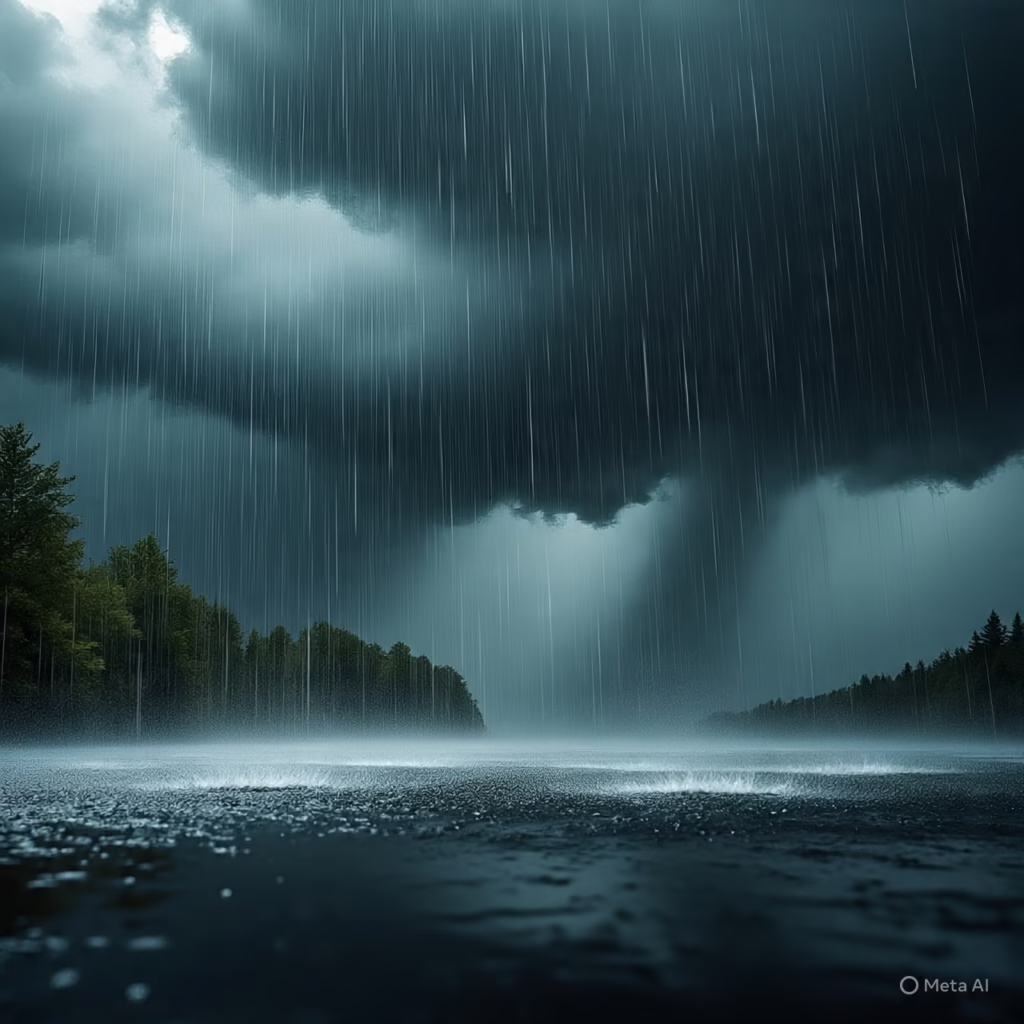
Title
Torrential Rain Is
Introduction Torrential rain is one of nature’s
most powerful displays It can arrive suddenly flood streets shake rooftops and change landscapes in a matter of hours But what exactly is rain What defines it how does it form and why is it so impactful
In this blog we take a deep dive into everything you need to know about rain including its meaning characteristics causes and how to stay safe when it strikes
What Is Torrential Rain
rain refers to very heavy rainfall that falls in a short period of time It typically overwhelms normal drainage systems and can quickly lead to flash floods and dangerous conditions
Meteorologically torrential rain is generally
defined as rainfall exceeding 7.6 mm or more per hour However in real-world terms it often refers to extreme downpours that disrupt daily life and cause significant runoff
You can read more about rainfall thresholds in our post how much rain is torrential internal link
Key Characteristics of Torrential Rain
High Intensity – Heavy rain that falls fast often in sheets
Short Duration or Long Storms – It may last minutes or hours depending on conditions
Associated with Storm Systems – Often comes with thunder lightning or strong winds
Localized Flooding Streets can flood within minutes especially in urban areas
Reduced Visibility – Torrential rain
limits visibility making travel dangerous
Want to understand how this differs from other types of rain Visit types of rainfall explained internal link
Causes of Torrential Rain
1 Convection and Atmospheric Instability
When the air near the ground is warm and moist and it rises rapidly into cooler air above it causes condensation which forms clouds These clouds can grow tall and dense eventually unleashing heavy rainfall
2 Monsoon and Tropical Systems
In countries like India Bangladesh and the Philippines rain is part of the monsoon season During this time warm ocean air feeds low pressure systems that dump huge volumes of rain over land
To explore this further check out why torrential rain happens internal link
3 Orographic Uplift
In mountainous regions moist air is pushed upward by the terrain As it rises it cools and condenses into rain clouds This explains why places like Mawsynram India and Cherrapunji receive some of the world’s heaviest rainfall
4 Weather Fronts and Storm Collisions
When cold and warm air masses meet the clash can result in powerful storms capable of producing torrential rainfall The heavier and slower-moving the front the longer the rain lasts
Examples of Torrential Rain Around the World
1 South Asia
Monsoon rains often deliver 200–300 mm of rainfall in just 24 hours In 2025 parts of Pakistan and northern India were devastated by rain resulting in floods landslides and infrastructure damage
See our full coverage in torrential rain where internal link
2 East Asia
South Korea and Japan experience heavy rainfall during typhoon season Torrential rains in 2023 led to the worst floods in South Korea in over a century
3 Spain and Morocco
In 2024 heavy rains in Spain’s Valencia region and southern Morocco caused flash floods and displaced thousands These areas typically receive limited rain so such intensity overwhelms local systems
To learn more about these cases visit World Weather Attribution external link
Impacts of Torrential Rain
1 Urban Flooding
Cities are particularly vulnerable because of concrete surfaces and limited drainage systems Roads quickly turn into rivers and buildings may flood even with short durations of rai2 Landslides and Erosion
In hilly or mountainous regions torrential rain can destabilize slopes leading to landslides and mudslides
3 Infrastructure Damage
Power lines bridges and roads may collapse or suffer severe damage from the pressure and volume of water
4 Health Risks
Standing water increases the risk of waterborne diseases and mosquito breeding
5 Transportation Disruptions
Airports close highways flood and public transit halts during and after heavy rainfall events
How to Stay Safe During Torrential Rain
1. Stay Indoors – Avoid travel unless necessary
2. Monitor Weather Alerts – Use apps or government channels
3. Avoid Flood Zones – Stay away from underpasses and low-lying areas
4. Have Emergency Supplies Ready – Flashlight food water and power banks
5. Do Not Drive Through Water – Just 6 inches of moving water can sweep a vehicle away
For a full safety guide read our article on how to stay safe during heavy rain internal link
Differences Between Heavy Rain and Torrential Rain
Feature Heavy Rain Rain
Intensity 5–7 mm per hour Over 7.6 mm per hour
Duration Can last longer Can be shorter but more intense
Effects Minor flooding Major flooding and disruptions
Sounds Noticeable Loud and often overwhelming
Can Torrential Rain Be Good
Yes in moderation rain can help:
Refill reservoirs and aquifers
Nourish crops in drought-affected areas
Cool down hot climates temporarily
However uncontrolled and prolonged torrential rain causes far more harm than benefit especially in unprepared regions
You can also read torrential rain for sleeping internal link to explore how some people find comfort in its sounds
Final Thought Torrential rain is more
than just heavy rainfall It’s a powerful weather event that can reshape cities impact lives and test infrastructure Understanding what it is how it forms and where it strikes can help us stay informed prepared and resilient
Whether you live in a flood-prone area or just want to understand the science behind the storms it’s worth paying attention to how our changing climate is influencing the intensity and frequency of rain
If you found this blog helpful check out what causes rain internal link for a deeper dive into the atmospheric dynamics behind the storm
Would you like this post turned into an infographic or translated into Hindi or Spanish Let me know and I’d be happy to help
You might to like read this blog
https://manyviral.com/can-trumps-big-beautiful-bill-pass-the-senate/
Leave a Reply